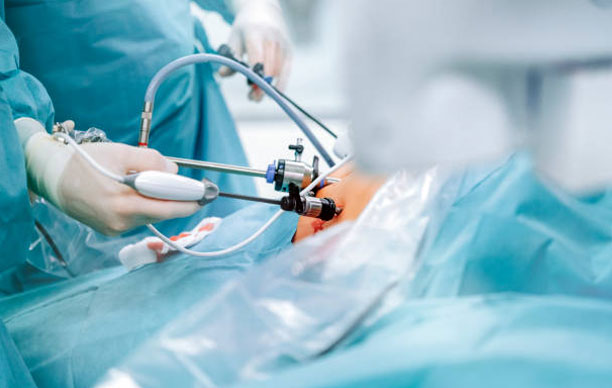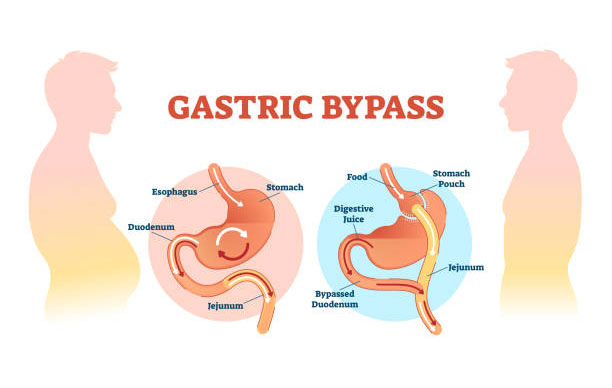BARIATRIC SURGERY and GASTRIC BYPASS
Services Provided by the Contracted Doctors and Hospitals
GASTRIC BYPASS SURGERY in ISTANBUL, TURKEY
Gastric bypass surgery in Turkey is one of the most common types of bariatric surgery, which combines restrictive and malabsorptive procedures. This surgery helps individuals lose weight by altering how their stomach and small intestine handle the food they eat.
The gastric bypass procedure involves dividing the stomach into a small upper pouch and a much larger lower “remnant” pouch, and then rearranging the small intestine to connect to both. Unlike sleeve gastrectomy, the remnant of the stomach is not removed. Consequently, food does not enter the remnant section of the stomach, but gastric juice and enzymes are still produced in this section to aid in digestion and absorption of food.
Patients who undergo the gastric bypass procedure lose weight by eating less due to the smaller size of their stomach, which limits calorie intake. Additionally, the direct connection between the remaining pouch and the small intestine reduces the absorption of high-calorie nutrients, resulting in weight loss through two different mechanisms.
The gastric bypass procedure is performed laparoscopically, without deep skin incisions or pain, under general anesthesia. On average, the surgery lasts for one hour. Reviews and before-and-after photos can be viewed here.
Prior to undergoing gastric bypass surgery, patients receive a full evaluation and consult with a number of specialists, including pulmonologists, anesthesiologists, psychiatrists, and endocrinologists. On the second day after the procedure, patients undergo a leak test, and they can be discharged from the hospital on the third day.
Currently, there are three primary gastric bypass surgeries being performed in Turkey: Roux-en-Y gastric bypass, mini gastric bypass, and sleeve gastrectomy.
All weight-loss surgeries have pros and cons, and none of them is a quick, simple fix for losing weight. With each procedure, patients must follow a diet and exercise program to achieve good results. Gastric bypass surgery is merely a tool to assist in the weight loss process.
Roux-en-Y gastric bypass is a restrictive and malabsorptive surgery. Patients who undergo this procedure have a new stomach pouch that limits the amount of food they can eat and makes them feel full with a small amount of food. The digestive system is rerouted to bypass most of the stomach and a portion of the small intestine, resulting in fewer calories and nutrients being absorbed from the food (malabsorption).
Mini gastric bypass is a less invasive procedure that is easier for surgeons to perform. However, this technique can cause bile and pancreatic enzymes to escape from the small intestine into the esophagus, which can result in severe inflammation and ulceration in the stomach residue and esophagus. If any leakage occurs into the abdomen, these corrosive fluids can cause serious complications.
Gastric Bypass Surgery in Turkey Brief Details | |
|---|---|
| Length of procedure: | 2 hours |
| Recovery period: | 1 month |
| Complications: | Bleeding, Leakage |
| Exercise: |
First month only walking, after 1 month patient can start swimming, going to gym.
|
| Risks: | Complications & Death |
| Stay: | 4 Days Hospital, 3 Days Hotel |
| Scars: | 5 incision in total |
| Pain: | Average |
| Potential candidate: | Who has more than 35 BMI. |
| Results: |
“We expect from our patient;10% In 1st month,
20% In 3 months, 30% In 6 months, 40% in 1st year of patient’s current weight with gastric surgery” |
| Best Age for Surgery | Between 18-55 |
Laparoscopic gastric bypass surgery is an effective and long-term weight loss solution. Patients experience immediate satiety with considerably smaller meals due to the reduced size of the new gastric pouch, which is similar to volume-limiting operations. This surgery combines both volume-limiting and absorption-reducing features.
Endoscopy is one of the most commonly used bariatric surgical procedures, and its efficacy is one of the most important aspects in the treatment of obesity and obesity-related health problems. When compared to laparoscopic surgery, this minimally invasive same-day procedure results in less weight reduction at 6 months, despite the fact that endoscopic gastric bypass shrinks the stomach lumen to a size equal to that of laparoscopic surgery. Often, endoscopic procedures are used as a solution for patients who need a revision procedure or have regained weight.
However, patients’ health conditions vary from one another, and this can affect the stages of surgery and determine the appropriate treatment for each individual.






